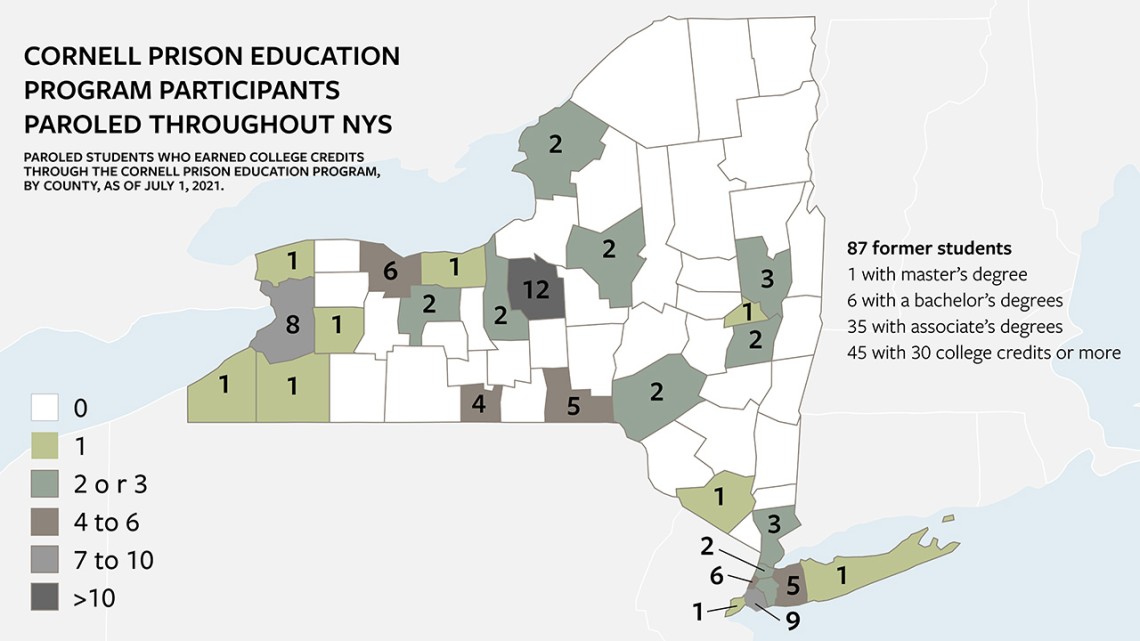
Tracker promotes consistent learning for incarcerated students
By Emily Sanders Hopkins
When Timothy Wyatt of Syracuse, an alum of the Cornell Prison Education Program (CPEP), was released from prison this spring, a new tracker tool alerted CPEP staff, who helped him enroll in a SUNY school and obtain a laptop computer.
The tool – called the Education Justice Tracker – was developed by a programmer for CPEP to help incarcerated students continue their learning as they move through the legal system. A new $600,000 grant from Ascendium Education Group will support the further development of both the EJT digital tool and models to expand the project nationwide.
“His chances of success in the world skyrocket when you add in just a little bit of support from a program like ours,” said Rob Scott, CPEP executive director. “This tool will help twice: to provide support and to study outcomes.”
“Colleges and universities, Cornell included, are at a disadvantage in trying to support incarcerated students, whose progress in school is regularly interrupted by transfers, lockdowns, disciplinary protocols, parole board decisions and releases,” said Scott, who recently joined the Department of Global Development in the College of Agriculture and Life Sciences as an adjunct assistant professor. “This support from Ascendium is a huge boost for our ambitious plan to provide a lasting solution. Bottom line, we want to diminish a major source of inequity in educational attainment—universities losing track of incarcerated students.”
The EJT, developed by computer programmer Terrell Harris, harvests data from state correctional databases which are publicly available and yet, up until now, not easily combed or analyzed. The tool then combines that criminal justice data with university data like student grades and credits earned.
The Ascendium grant will also pay for reentry advising/supports for released alumni like Wyatt, two conferences to be hosted by CPEP for other early adopters of the EJT, and data collection to inform research on this targeted approach to post-prison academic services.
“This is an opportunity to take the work that we’ve already done and drastically scale it out and to expedite the addition of more features into the application,” Harris said.
CPEP presented its EJT prototype at the National Conference on Higher Education in Prison in March 2021.
Ascendium, a nonprofit charitable organization, awards millions of dollars every year to organizations and initiatives working to break down barriers in postsecondary education.
“Justice-involved students face barriers linked to their identity, their vulnerable status in the correctional system and the stigma and discrimination that they will endure when trying to advance goals during and after college, among other issues” Scott said. “To truly serve everyone, prison education programs need good data on students and outcomes.”
Emily Sanders Hopkins is a writer for the Cornell Prison Education Program.
Get Cornell news delivered right to your inbox.
Subscribe
